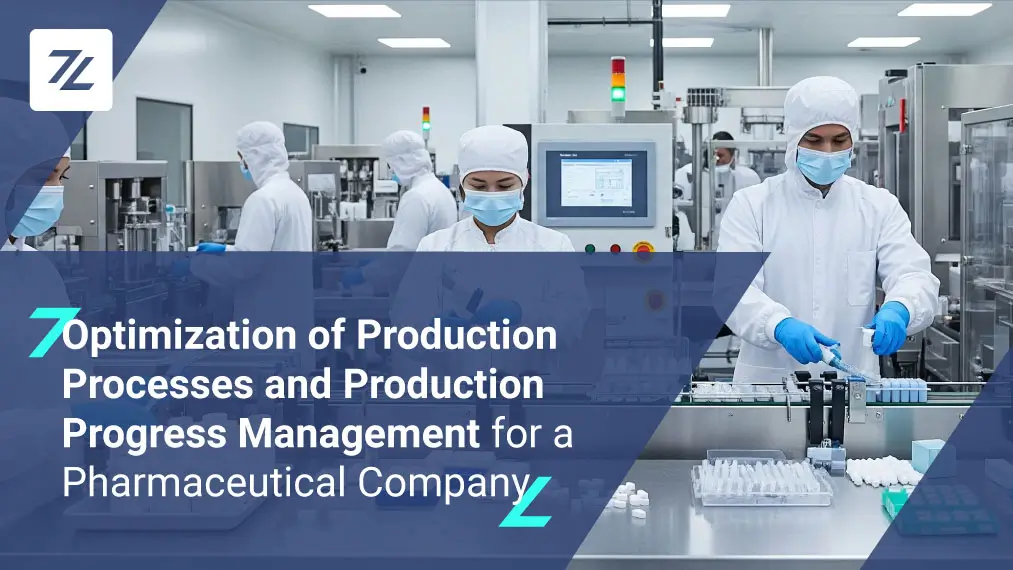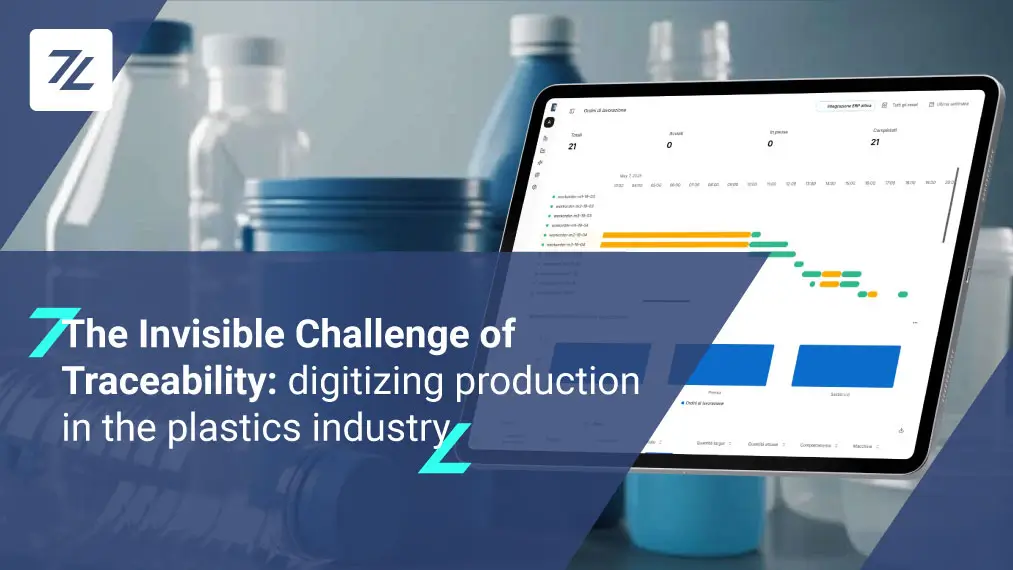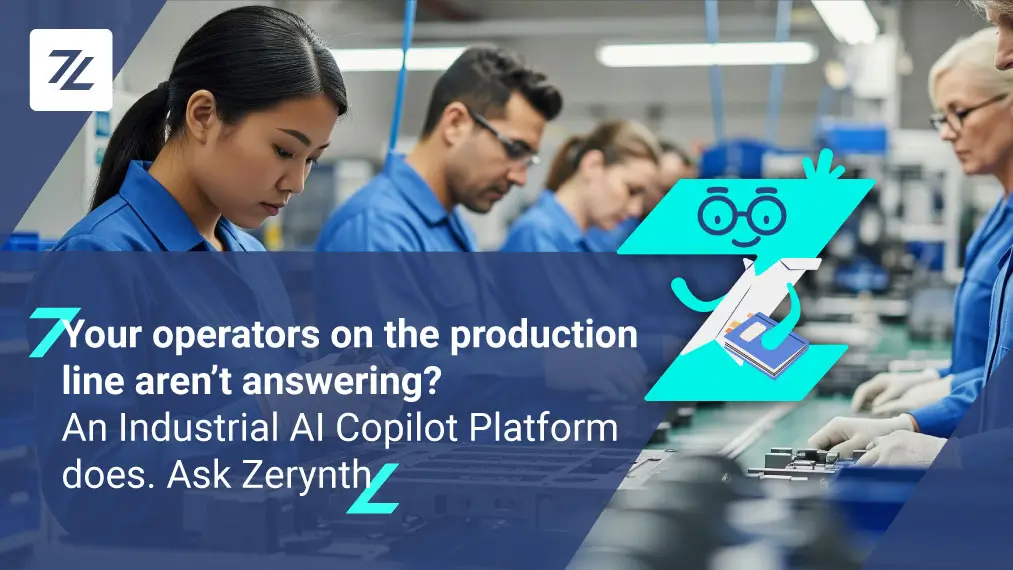Artificial Intelligence (AI) is a dominant topic in digital discussions, yet its concrete application, especially in industrial production, remains a challenge faced by only a few courageous entities.
Many AI discussions may appear more like a temporary trend than a genuine necessity. However, with the increasing complexity of industrial operations, the adoption of innovative solutions becomes essential to stay competitive in the market.
But how can artificial intelligence truly transform the way companies approach industrial production? Is AI just a passing trend, or does it represent an authentic digital revolution?
In this article, we will explore how companies are approaching new tools, what the trends in the digital revolution are, and which industries are mainly involved.
AI and Industrial IoT: The Digital Revolution of 2024
Thanks to the increasingly deep integration between Artificial Intelligence (AI) and the Internet of Things (IoT), there is evidence of a significant impact on operational efficiency, customer experience, and productivity across various sectors.
A concrete example of how AI and IoT integrate is in predictive maintenance, advanced robotics, and the optimization of the in-car experience. The combination of AI and IoT tools is emerging as a key element for companies, as highlighted in the annual IoT predictions report for 2024 by Telenor IoT and Omdia, titled “Navigating the Perfect Storm: AIoT to emerge as the defining enabler of digital transformation.”
Mats Lundquist, CEO of Telenor Connexion and head of Telenor IoT, states that AIoT will become the cornerstone of digital transformation. This convergence is not merely an evolution but a true revolution in how companies operate and compete on a global scale. The report emphasizes the urgency to act swiftly to fully capitalize on the benefits of this convergence.
The study highlights how this synergy transforms simple solutions into tools of greater impact and value. Sectors such as the automotive industry, general manufacturing, transportation, utilities, and smart cities derive tangible benefits from this convergence.
2024 will see four key drivers for AIoT adoption. Firstly, 48% of companies will prioritize AI and machine learning in IoT implementations, influenced by changes in competitive dynamics. Secondly, advancements in hardware, especially in semiconductors and AI Edge processors, will provide greater computing power for AI integration.
A third critical element will be the optimization of AI models, with efforts to reduce the sizes of algorithmic models used, enabling more widespread use of AI in IoT applications.
Finally, generative AI is making strides, with 38% of companies already fully adopting or in the process of implementing it, according to the “2024 IT Enterprise Insights” study by Omnia. Only 10% of companies show no interest in this technology, highlighting a growing awareness of the importance of generative AI.
Generative Artificial Intelligence: Exploring the Potential in Industrial Manufacturing
Programming the journey towards the promised land of Artificial Intelligence (AI) requires a clear vision of its potential in the context of industrial manufacturing. Over the years, traditional technology has already proven its value in various applications such as process automation, predictive maintenance, quality control, supply chain management, human-machine collaboration, and energy efficiency. However, the future promises even more innovation with the advent of generative AI.
A recent McKinsey study highlights that 60% of companies are already using GenAI tools, while 40% plan to increase their investments. This new frontier of AI finds applications in crucial sectors like marketing and sales, product and service development, customer support, and back-office assistance. It’s an initiative still in its early stages, but the opportunities are exciting.
Generative AI models will enable the handling of complex inputs more naturally, enhancing human-machine interactions and making them akin to real conversations. This evolution will have a significant impact on servitization, with the possibility for companies to deliver “speaking” machines to end users. These machines could respond to specific questions about their operational status and provide guidance on any anomalies.
GenAI tools, characterized by Large Language Models (LLM), provide the opportunity to interact with the company’s data assets through conversational language, both spoken and written. This enriches and extends the potential applications of AI in manufacturing, introducing new opportunities for communication and innovation, especially in three future application areas:
- Back-Office Automation for Improved Daily Productivity
- Product/Service Innovation using Embedded Technologies like Generative Design
- Process Innovation and Knowledge Management, positioning Generative AI as a partner in business innovation processes.
The adoption of Artificial Intelligence is a process that requires careful tailoring to suit each company’s specific needs. Its applications are diverse, ranging from procurement management to supply chain optimization. Generative AI opens up new opportunities to stimulate creativity, particularly in the realm of design.
What about production?
Artificial intelligence (AI) and generative artificial intelligence play a significant role in maximizing efficiency in back-office and innovation processes, However, how do typical Italian SMEs (Small and Medium-sized Enterprises) perceive the integration of these technologies into their production operations? There is considerable skepticism, especially when discussing the possibility of AI replacing human labor or manual tasks. The key to understanding its value lies in one essential factor: SUPPORT.
AI should be seen as a support to humans and not as a replacement! With an appropriate mindset and usage it can maximize efforts and make processes smoother.
Business imperatives to maximize the value of artificial intelligence (AI) in the manufacturing context are diverse and require a well-defined strategy. Strategic alignment is crucial, as the adoption of generative AI must be integrated into the overall company strategy. Identifying areas where generative AI can add value, such as automating repetitive tasks and personalizing customer experiences, is essential for success.
Cultural change is a necessary step, as the integration of generative AI often requires a transformation within organizations. Fostering a culture of innovation, experimentation, and continuous learning becomes fundamental in adapting to technological advancements. Additionally, skills development is essential to prepare the workforce for the challenges of AI. Investing in training programs reduces the skills gap and enables employees to effectively leverage generative artificial intelligence technologies.
In the manufacturing sector, generative AI is already making a significant impact in various application areas:
- Automation and Process Optimization: Autonomous robots with machine learning capabilities reduce production times and enhance product quality, supporting humans in executing complex tasks.
- Predictive Maintenance: AI implements systems that constantly monitor machine conditions, predicting when maintenance is needed.
- Supply Chain Optimization: Advanced data analysis enables demand forecasting, stock optimization, and improved production planning, reducing waste and enhancing efficiency.
- Human-Machine Collaboration: Interaction between human workers and intelligent robots improves flexibility and safety in industrial operations.
- Energy Optimization and Sustainability: AI analyzes energy consumption data to identify waste and implement solutions that reduce environmental impact.
- Quality and Process Control: Vision systems and automatic learning algorithms enhance quality control, reduce waste, and ensure products meet the highest standards.
Let’s start with Zero
Artificial Intelligence is not just a trend in the context of industrial production; it represents a true digital revolution. IoT technologies demonstrate that the practical application of AI leads to significant improvements in production processes and contributes to a complete transformation towards Industry 4.0. AI is not merely a trend but a necessity for companies aiming to remain competitive and at the forefront in the new digital era 5.0.
Zerynth is about to launch Zero, the virtual assistant that will support users in their website experience… and a lot more! With the addition of this innovative feature, the Zerynth Platform is not just embracing AI, but also introducing an integrated tool designed to enhance production processes and increase the value of connected industrial products for Italian SMEs.
Curious to learn more? Check out the teaser and SAVE THE DATE for February 15th!
Share This Story, Choose Your Platform!
Follow Zerynth on
Latest Posts





